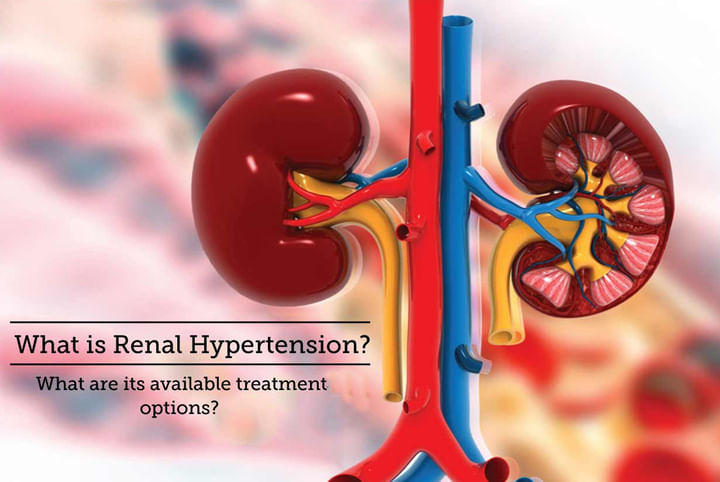What is Renal Hypertension? What are its available treatment options?
Renal hypertension refers to high blood pressure caused by kidney disorders. It occurs when the arteries that supply blood to your kidneys become narrow. As a result, the kidneys receive reduced blood flow and in response, release hormones to stimulate the body into retaining water and sodium. Over time, the additional fluid fills up your blood vessels and causes blood pressure to rise.
Symptoms of Renal Hypertension
The condition is usually asymptotic. One cannot feel narrowing of the arteries. Nevertheless, excessively high blood pressure is characterized by the following signs –
If you experience the above symptoms or are unable to bring down your blood pressure levels within the desired range despite taking medications, you should see a doctor right away.
Treatment for Renal Hypertension
There are effective treatment options for renal hypertension. Your doctor will review your medical history and recommend treatment depending on elevated blood pressure levels.
-
Medications – The first line of treatment is medications to control high blood pressure if you are diagnosed with renal hypertension. The most commonly used medications are Angiotensin II Receptor Blockers (ARBs) and Angiotensin Converting Enzyme Inhibitors (ACEs).
For some people, medications for renal hypertension work well and are very effective in keeping blood pressure under check. Others may have to rely on a combination of medications and other approaches.
-
Angioplasty – The procedure using which the doctor threads a catheter into the renal artery through your groin. The catheter or tube has a tiny balloon attached at the end. The doctor inflates the balloon to wide open the artery and improve the flow of blood.
-
Stenting – During angioplasty, the doctor may insert a wire-mesh stent inside to expand your renal artery. Even as the balloon is removed after performing an angioplasty, the stent remains in place, holding the walls of the blood vessel wide open and allowing better blood flow.
-
Surgery – The doctor may recommend renal artery bypass surgery if the condition seems threatening. During the procedure, the surgeon will transplant a reserve blood vessel – perhaps from the spleen or liver – into the renal artery to form a new channel for the blood to reach your kidneys.
For people whose blood pressure cannot be controlled or brought down using medications alone, surgery may be the most effective treatment approach. Besides, management of renal hypertension involves dietary and lifestyle changes in the long run.


+1.svg)
